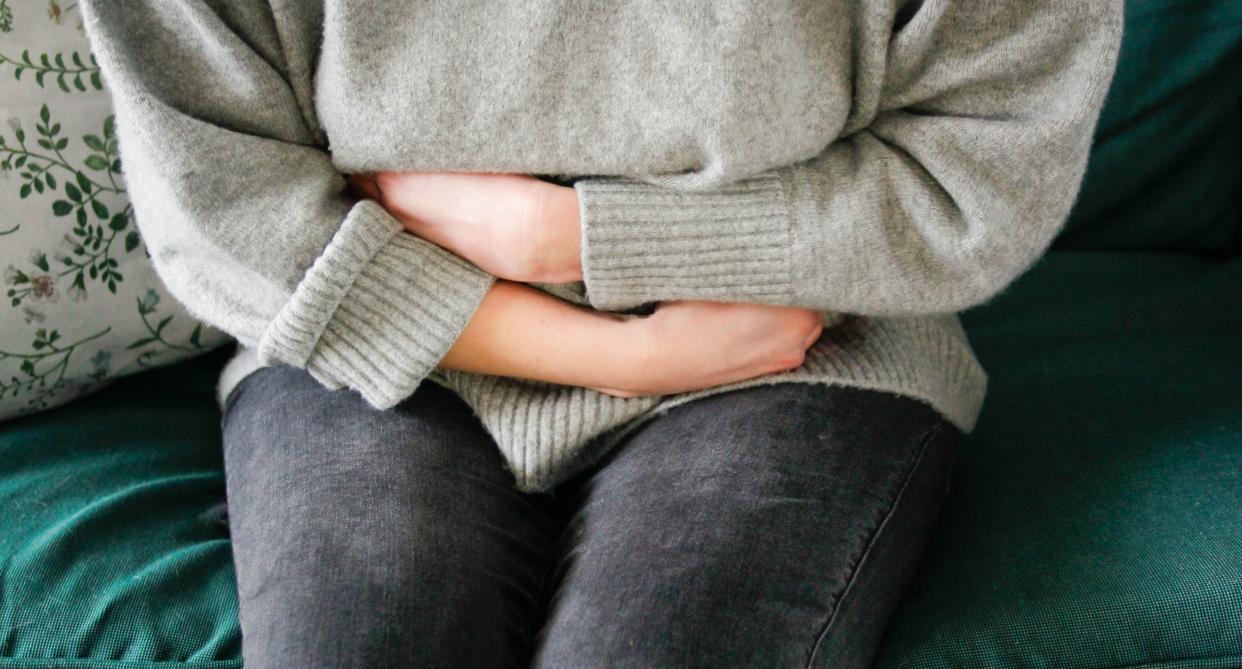What endometriosis is as study reveals women can become infertile years before diagnosis

Women with endometriosis could become infertile years before being diagnosed with the condition, new research has found.
Endometriosis affects one in 10 women in the UK, and it affects fertility as it can block fallopian tubes where the egg travels to reach the uterus and can form scar tissue.
Diagnosis of the condition is often delayed by seven years, the research outlines, as many women mistake the heavy bleeding and pain for being a heavy period. This delay means that women are often already infertile before they are officially diagnosed.
Study authors looked at 18,324 Finnish patients aged 15 to 49 who had been surgically diagnosed between 1998 and 2012 and 35,793 matched controls.
Read more: Endometriosis: Fertility experts bust four common myths about the condition - Yahoo Life UK, 6-min read
The patients were tracked over a span of 15 years and, of these women, 40% with endometriosis had a baby, compared to 66% without endometriosis.
"Our findings suggest doctors who see women suffering from painful menstruation and chronic pelvic pain, should keep in mind the possibility of endometriosis and treat them effectively," lead author Professor Oskari Heikinheimo, of Helsinki University Hospital in Finland, said.
"Doctors should discuss with these women the possible effects on their fertility, in addition to the effects of their age, and the impairment of fertility should be minimised by offering relevant treatment for endometriosis without delay."

The findings come after Alexa Chung said earlier this year that women are being "dismissed, misdiagnosed and left floundering” before they get tested for endometriosis.
The fashion designer, presenter and model, 39, received treatment for the painful condition while a cyst was being removed.
"The condition is shrouded in mystery and misinformation, and frequently mishandled by doctors. There’s no cure," the former T4 presenter wrote in British Vogue.
"Often sufferers end up going back for surgery after surgery. Shockingly, there are stories of some doctors suggesting that women have a baby to suppress their symptoms."
What is endometriosis?
Endometriosis the growth of endometrial-like tissue (the lining of the womb/uterus) outside of the uterus.
"Endometriosis is a condition which affects women usually around the age of 30 to 40," Dr Diana Gall from Doctor-4-U says.
"The uterus is lined with tissue known as endometrium, but in some women this tissue grows outside of the uterus on the ovaries and fallopian tubes causing painful symptoms which are sometimes chronic.
"When a woman menstruates, this lining breaks down and is discarded through a bleed, but if this tissue is on the outside of the womb there is nowhere to release the bleed."
According to recent statistics from Endometriosis UK, an estimated one in 10 women of reproductive age in the UK suffer from it. And 10% of women live with the condition worldwide, the same as 176 million across the globe.
Signs and symptoms of endometriosis
According to the NHS the symptoms of endometriosis can vary. Some women are badly affected, while others might not have any noticeable symptoms.
For women who do experience symptoms the main sign is likely extreme period pain in your lower tummy or back (pelvic pain.) Periods are also likely to be very heavy.
Some other common symptoms include:
pain in your lower tummy or back (pelvic pain) – usually worse during your period
period pain that stops you doing your normal activities
pain during or after sex
pain when peeing or pooing during your period
feeling sick, constipation, diarrhoea, or blood in your pee or poo during your period
difficulty getting pregnant

What causes endometriosis?
No one really knows why certain women suffer from endometriosis, but several theories exist.
"In some women with the condition it's also common for their other female family members to have endometriosis which suggests it's a hereditary condition, or that you're more likely to develop the condition if your mother or sisters have it," Dr Gall explains.
"There's also a link between endometriosis and women who have a weak immune system, the body cannot fight off endometrial cells that are growing elsewhere in the body due to low immunity," she continues.
Some women have existing problems with their menstruation which may also be a cause.
"A condition known as retrograde menstruation is the most common cause of endometriosis," Dr Gall explains.
"Retrograde menstruation occurs when the lining of the womb flows back up through the fallopian tubes instead of being released out of the body and instead grows on other pelvic organs."
How is endometriosis treated?
At the moment there is no cure for endometriosis, but there are treatments that can help relieve the symptoms.
According to the NHS treatments include:
painkillers
certain hormonal contraceptives - including the combined pill
the contraceptive patch
an intrauterine system (IUS)
medicines called gonadotrophin-releasing hormone (GnRH) analogues.
In certain cases those living with the condition can have surgery to cut away patches of endometriosis tissue.
And in severe cases you can have an operation to remove part or all of the organs affected by endometriosis, such as surgery to remove the womb, a hysterectomy.
Where to get help for endometriosis
Endometriosis UK provides a huge wealth of support and information in addition to a helpline, web chat and online community.
They recommend reaching out to The Samaritans for 24-hour emotional support and suggest joining a local support group, too.
Watch: Endometriosis: Women in severe pain put off GP visits because of 'medical gaslighting' and thinking pain is normal


